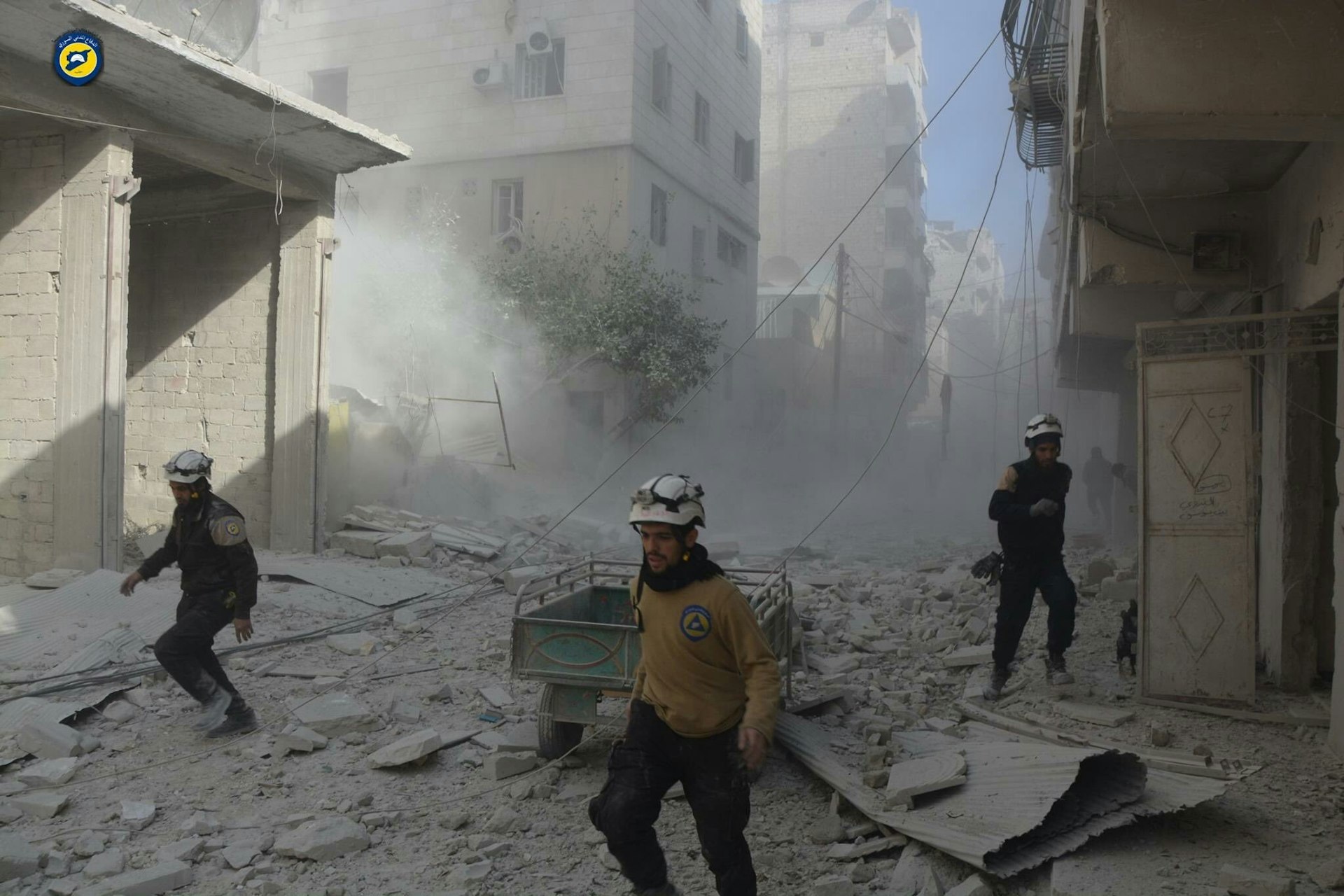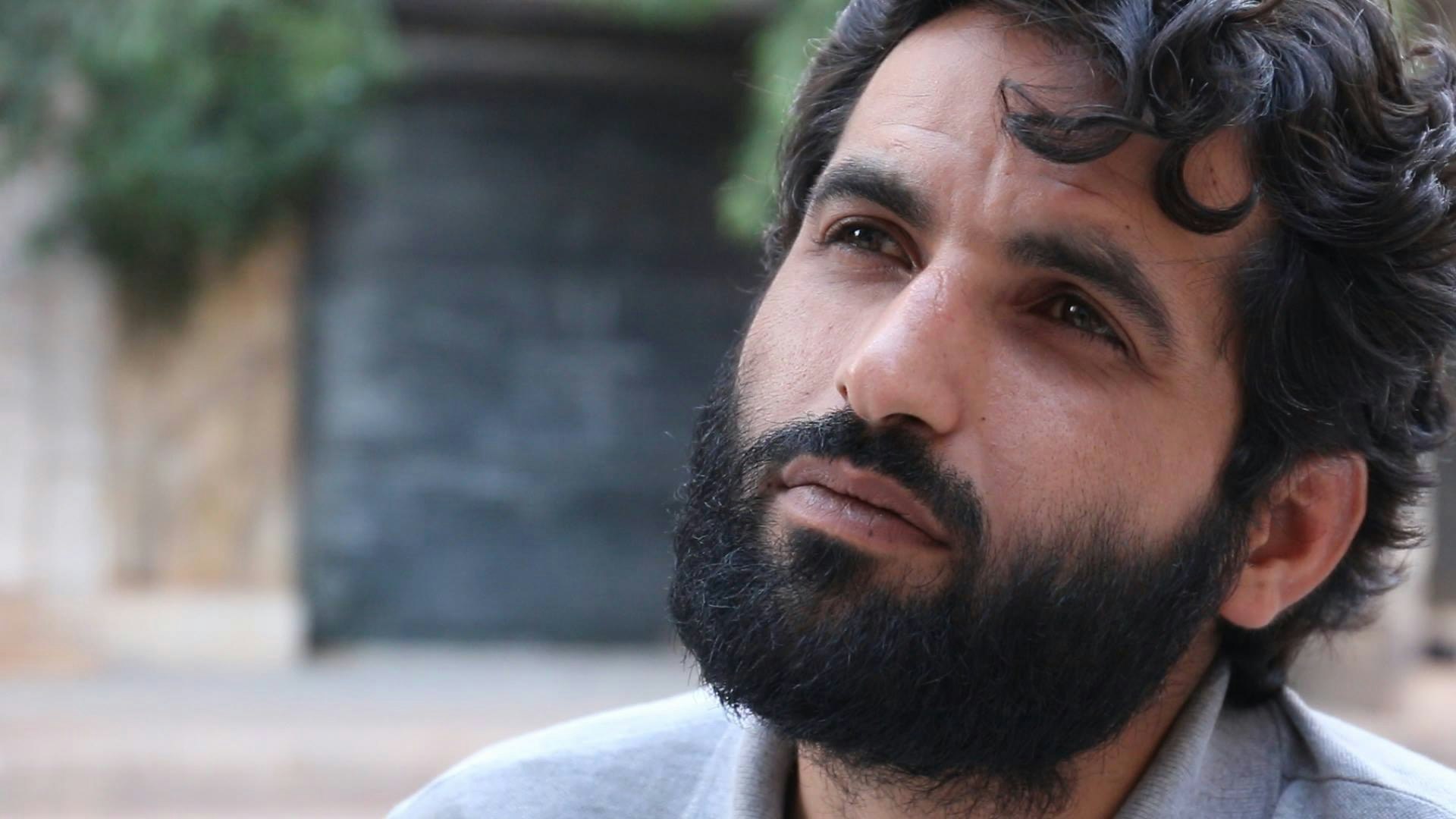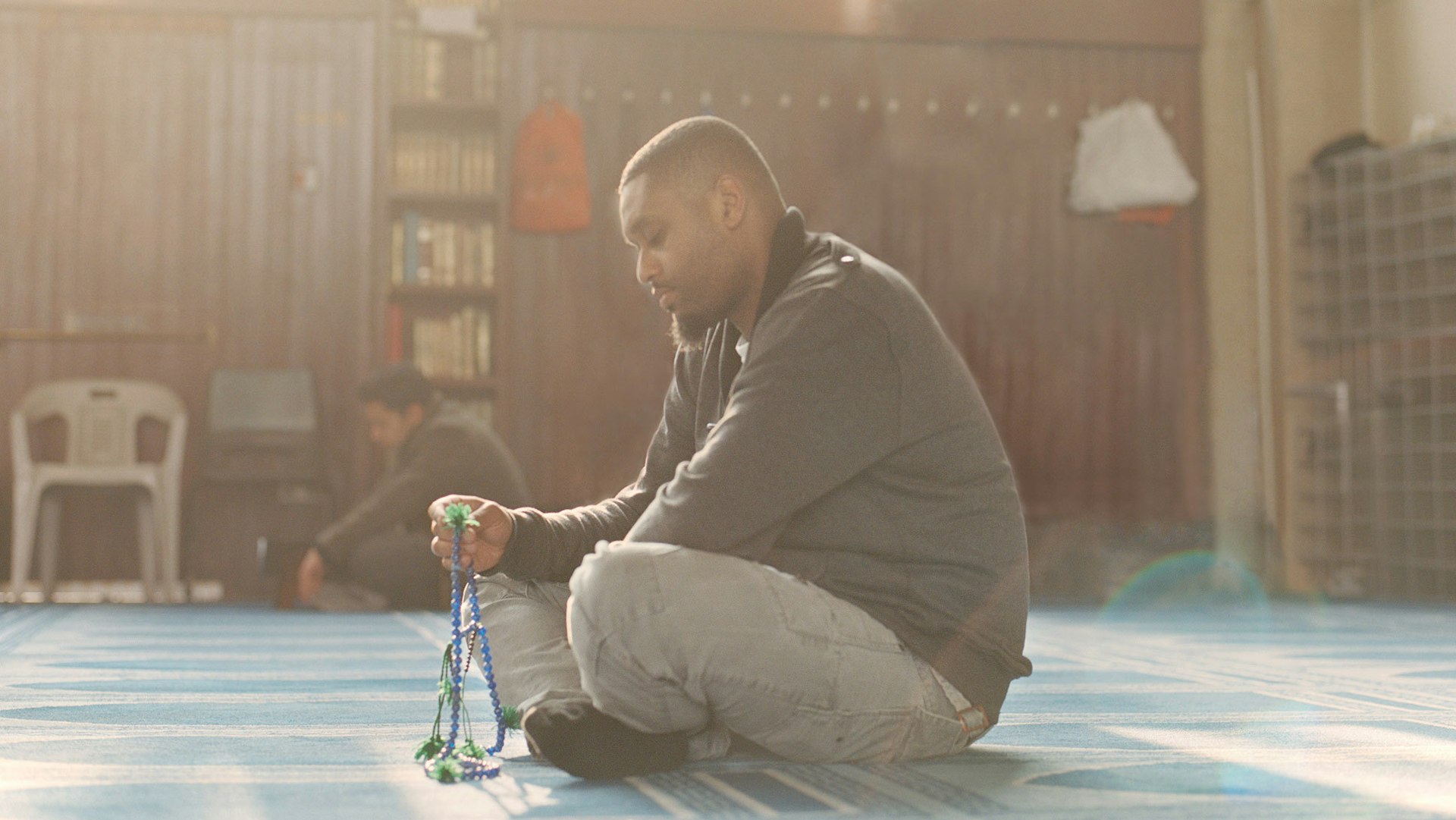
An appeal from Aleppo: 'Every moment of delay is a loss of life'
- Text by Alex King
- Photography by The White Helmets
Aleppo is one of the greatest cities in the Middle East: a unique hub of art and culture that has bridged the worlds of East and West for thousands of years. Or it was, until it became a strategic battleground in the Syrian Civil War. Much of the once-proud city now lies in ruins, and tens of thousands have died.
Today, those who remain trapped in the city are stuck in a living hell. The Assad regime drops shells indiscriminately as many await their death. The world is watching, but nothing has been done to stop the bloodshed. Executions are taking place on the streets.
Ismail Alabdullah, is a volunteer with the Syrian Civil Defence force volunteers, also known as the White Helmets, in the last rebel-held area of Aleppo. He and other volunteers have been struggling to help those around them clinging on for survival, but the destruction has been overwhelming: families are hiding in bombed-out buildings as more artillery and air strikes rain down on the city.
“We have people who waited all night in the street to be evacuated, men, women and children,” Ismail explains. “It’s very cold in Aleppo right now and there’s no heating. The bombardment and shelling started again this morning and it is more intense than before.”
“All civilians are left in three neighbourhoods, waiting for the leaders to make a decision about their fate,” he continues. “There are no shelters so people are staying in normal buildings. Many of those are already partially destroyed. Supplies are very limited. We all eat soup, rice or bulgur.”

Ismail
Rebels fighting against president Assad have held on to positions in Eastern Aleppo since 2012 and the area has witnessed some of the most severe destruction of the conflict. On 27 November 2016, forces loyal to the Assad regime launched a major ground offensive and have nearly captured all of the remaining rebel-held territory.
Pro-regime forces have been accused of atrocities such as extrajudicial killings, detentions and forced recruitment into the Syrian army, as they advance on a shrinking pocket where civilians remain trapped – and negotiations to secure their safe passage out of conflict areas have so far been unsuccessful.
The White Helmets have courageously provided a glimmer of hope for civilians trapped in areas targeted by the regime. Where there is no functioning state, the volunteers have used their limited resources and training to support civilians in the aftermath of airstrikes, barrel bomb attacks and artillery strikes. Over 140 members of the White Helmets have been killed since hostilities began, but in the process they have saved more than 62,000 lives.
Now the situation in Aleppo has deteriorated to such an extent that they can do little to help. “We no longer have the tools or equipment we need to save lives,” Ismail says. “We have no ambulances to drive to the injured and with this many attacks it’s hard to carry out rescue operations. In the past two days we weren’t even able to count the dead. People were trapped in the rubble and we couldn’t reach them. There were bodies in the street that we couldn’t collect for a proper burial. The hardest thing ever is when you know people need help and you cannot provide it.”
“We have had to abandon our rescue centres and move along with our families to other neighbourhoods,” Ismail continues. “We fear for our lives and the lives of every civilian here under siege. We also have reason to believe that rescue workers, medical workers and human rights workers and journalists, who have been targeted constantly by the regime, are at great risk. The biggest pain now, however, is not being able to save the people who need us.”
Ismail has been posting video updates to his Twitter account to draw attention to the plight of civilians trapped in the devastated city. So far, efforts by the UN and other bodies have been unsuccessful in forcing both sides to help civilians leave the area. For thousands of people hiding in the bombed out neighbourhoods, an agreement to ensure their safe passage is their only hope of survival.
“We want a safe passage for civilians and world leaders need to guarantee this urgently,” Ismail says. “We have injured civilians here, children, elderly people, people who are disabled all living under the bombardment. Every moment of delay is a loss of life.”
Find out more about the The White Helmets and The Syria Campaign, who support their work.
Enjoyed this article? Like Huck on Facebook or follow us on Twitter.
